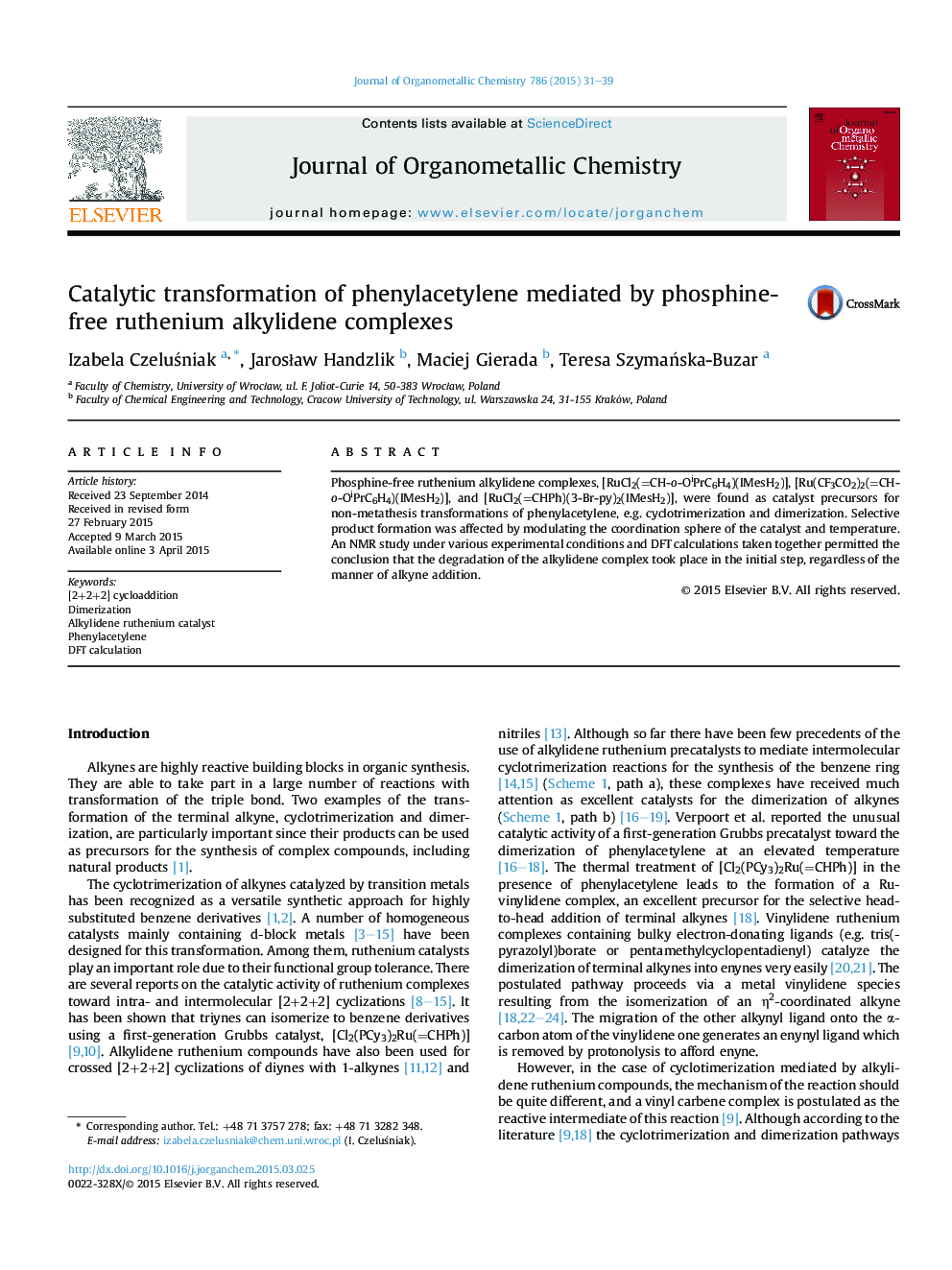| کد مقاله | کد نشریه | سال انتشار | مقاله انگلیسی | نسخه تمام متن |
|---|---|---|---|---|
| 1320883 | 1499856 | 2015 | 9 صفحه PDF | دانلود رایگان |
• Phosphine-free Ru alkylidene initiators toward alkyne transformation were reported.
• Degradation of Ru alkylidene complex took place at the initial step of reaction.
• The way of the initiation of acetylene dimerization/cyclotrimerization is discussed.
Phosphine-free ruthenium alkylidene complexes, [RuCl2(=CH-o-OiPrC6H4)(IMesH2)], [Ru(CF3CO2)2(=CH-o-OiPrC6H4)(IMesH2)], and [RuCl2(=CHPh)(3-Br-py)2(IMesH2)], were found as catalyst precursors for non-metathesis transformations of phenylacetylene, e.g. cyclotrimerization and dimerization. Selective product formation was affected by modulating the coordination sphere of the catalyst and temperature. An NMR study under various experimental conditions and DFT calculations taken together permitted the conclusion that the degradation of the alkylidene complex took place in the initial step, regardless of the manner of alkyne addition.
Second-generation phosphine-free ruthenium alkylidene complexes were found as catalyst precursors for cyclotrimerization and dimerization of phenylacetylene. Selective product formation was affected by modulating the coordination sphere of the catalyst and temperature. On the basis of the obtained NMR data and DFT calculations, the manner of initiation of alkyne transformation is proposed.Figure optionsDownload as PowerPoint slide
Journal: Journal of Organometallic Chemistry - Volume 786, 15 June 2015, Pages 31–39
